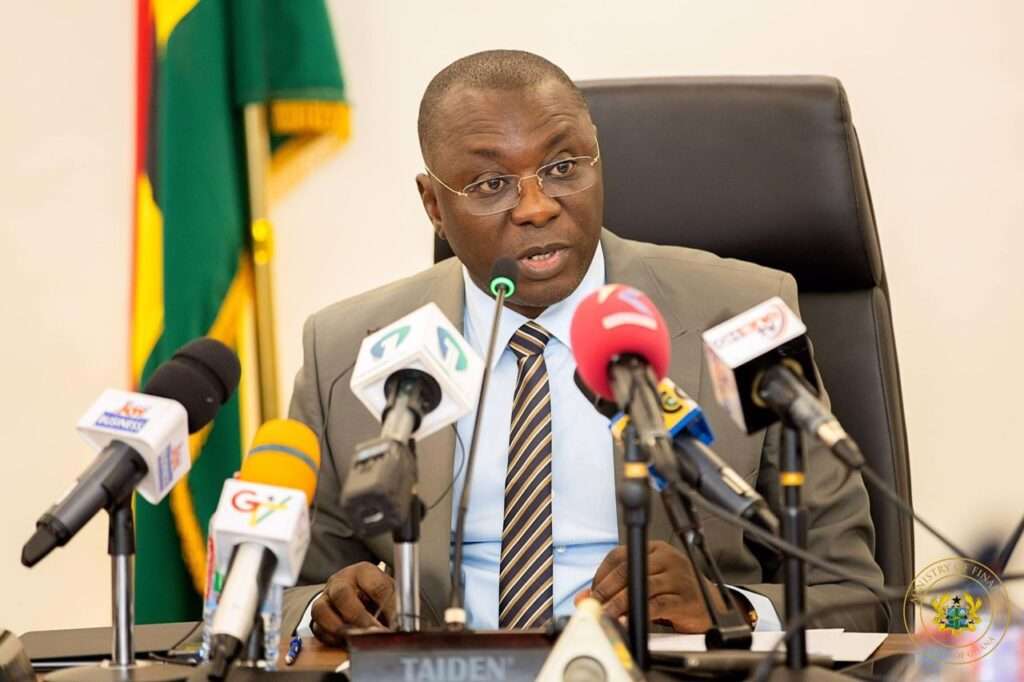Ghana’s Ministry of Finance has announced a robust recovery of the national economy, as revealed by the latest GDP statistics from the Ghana Statistical Service (GSS).
According to the GSS report, the country experienced a significant rebound in the first half of 2024, despite global economic challenges and the nation’s ongoing debt restructuring efforts.
In a press release issued on Thursday, 19th September 2024, the Ministry of Finance attributed the improved performance to strategic government interventions aimed at stabilizing and growing the economy under the IMF-supported Post Covid-19 Programme for Economic Growth (PC-PEG). This initiative is specifically designed to address post-pandemic economic recovery and foster sustainable development across key sectors.
“It is instructive to note that the 5.8% overall growth for the first half of 2024 is significantly higher than the 1.5% growth target for 2024 which was later revised to 3.1% during the 2024 Mid- Year Review of Fiscal Policy presented in Parliament in July 2024.”
Ministry of Finance
The ministry drew comparisons to countries that have undergone similar debt restructuring processes, noting that Ghana’s performance is significantly higher.
For instance, Jamaica, which also restructured its debt, recorded an average real GDP growth rate of only 1%-2% over the course of a decade following its restructuring. Ghana’s accelerated recovery, therefore, positions it as a standout example of post-debt restructuring economic resilience.
The GSS report, published on Wednesday, 18th September 2024, indicated that Ghana’s overall real GDP growth for the first half of 2024 surged to 5.8%, a remarkable improvement from the 2.9% recorded during the same period in 2023.
The growth was primarily driven by a 4.8% expansion in the economy during the first quarter (Q1) of 2024, followed by a more pronounced 6.9% growth in the second quarter (Q2). This Q2 performance represents the highest quarterly GDP growth recorded in the past five years, underscoring the resilience of the Ghanaian economy.
Notably, non-oil GDP growth also recorded significant progress, with a growth rate of 5.6% for the first half of 2024, compared to 3.8% in the corresponding period of 2023. These growth figures reflect the positive impact of macroeconomic policies and fiscal measures implemented by the government as part of its post-COVID recovery strategy.
Sectoral Contributions to Growth

The Ministry of Finance highlighted the contributions of Ghana’s three major economic sectors—Agriculture, Industry, and Services—as key drivers of the recovery. Each sector recorded substantial growth in the first half of 2024.
“The agricultural sector, a vital component of Ghana’s economy, expanded by 5.0% in the first half of 2024, reflecting consistent growth across various sub-sectors.
“The crops subsector grew by 5.6%, the fishing subsector by 4.7%, and livestock by 4.7%. These gains were supported by government programs such as the Planting for Food and Jobs Phase 2 initiative, which continues to drive productivity in the sector.”
Ministry of Finance
Also, the industrial sector saw an average growth rate of 8.0% in the first half of 2024, a notable reversal from the 2.0% contraction recorded in the same period of 2023. The growth was driven by the mining and quarrying subsector, which expanded by 13.9%, and the oil and gas subsector, which grew by 9.9%.
Construction and manufacturing also contributed to this recovery, with respective growth rates of 8.3% and 2.8%.
The Ministry revealed that the services sector posted impressive growth, averaging 4.4% in the first half of 2024. Information and communication led the way with a robust 15.3% growth, while financial and insurance activities grew by 6.5%.
Other subsectors, including accommodation and food services, real estate, and professional services, also contributed positively to the overall performance of the services sector.
The Ministry of Finance reiterated the government’s commitment to restoring and sustaining macroeconomic stability. The ministry acknowledged that stable macroeconomic conditions are critical to promoting inclusive growth and improving the living standards of the Ghanaian people.
“It is expected that the implementation of government’s growth strategy including the Planting for Food and Jobs Phase 2 Programme, the SME Growth and Opportunity Programme, the 1 District 1 Factory Programme, the Economic Enclave Programme under the Ghana CARES Programme will further consolidate the gains we are making in economic recovery to improve the living conditions of the Ghanaian people.”
Ministry of Finance
In light of the positive GDP figures, the Ministry emphasized that it remains optimistic that Ghana’s economy is on a firm path to recovery despite external challenges.
The government’s policy framework, supported by the IMF programme, aims to consolidate these economic gains, promote sustainable development, and improve the quality of life for Ghanaians across the country.
READ ALSO: Starmer Faces Backlash Over Donations And Aide’s Salary




















